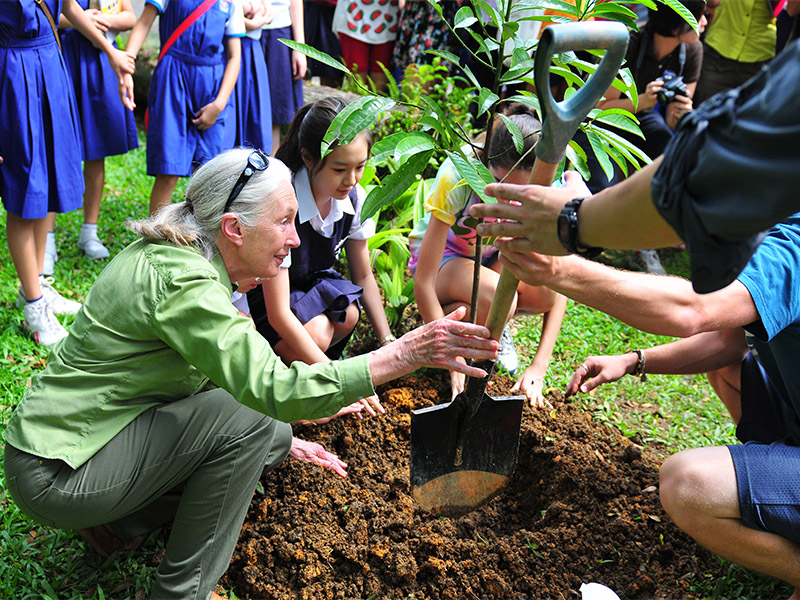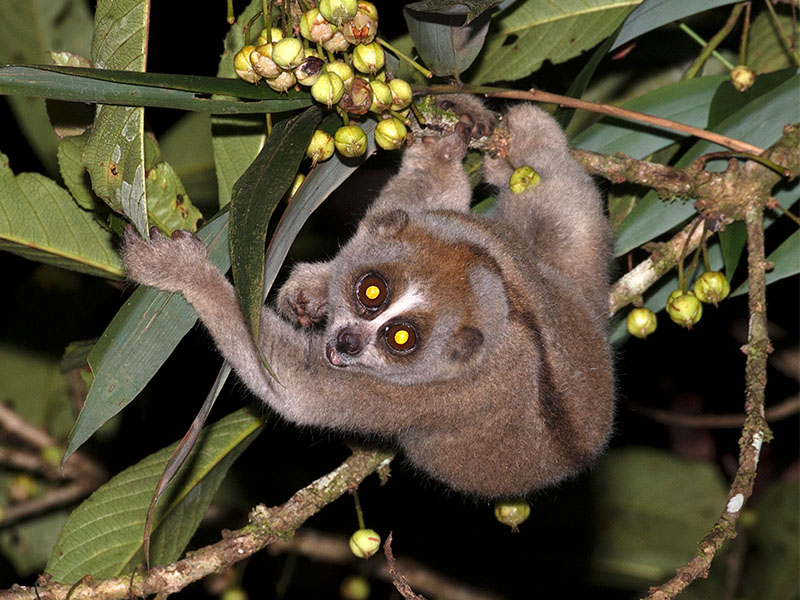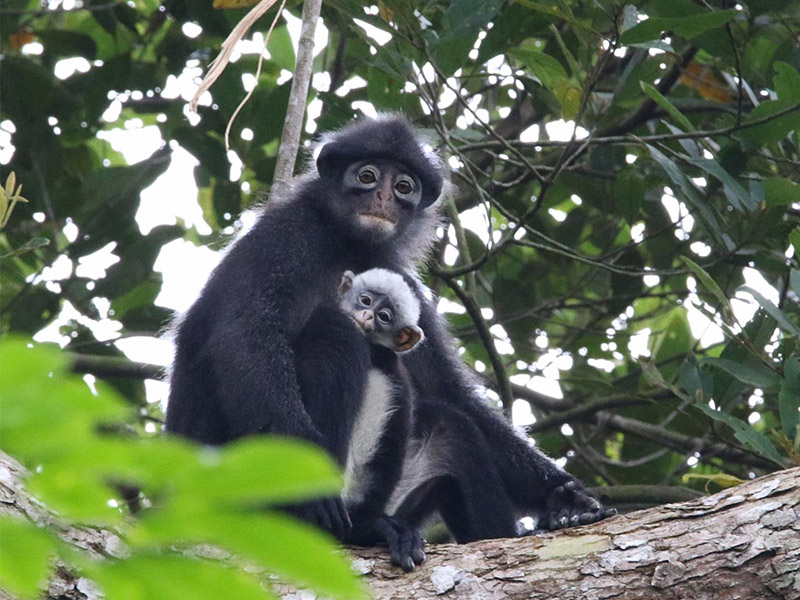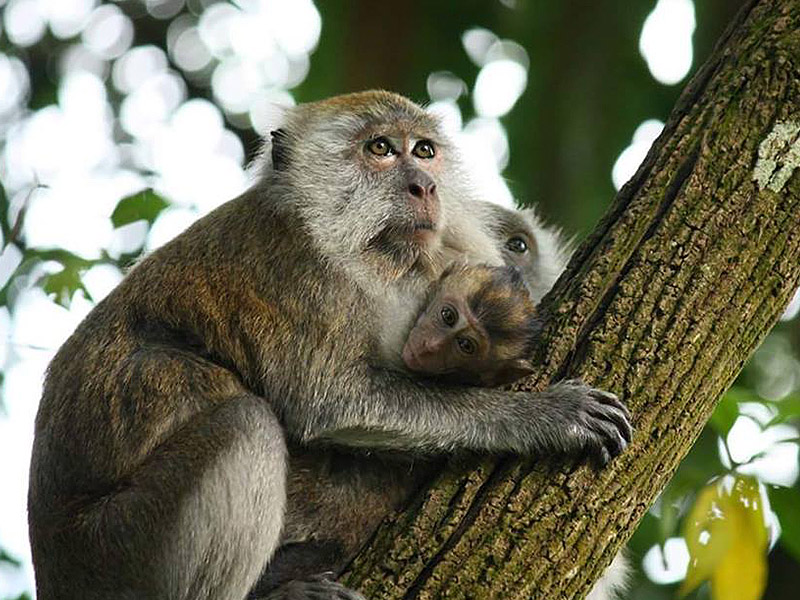Volunteering as an expat can benefit you in many ways. It helps integrate you into a new society, gives you an increased sense of purpose, and helps you make friends from a range of nationalities. And of course you’ll be helping others. Whether you want to help the elderly, work with kids or play a role in protecting the environment, there are plenty of volunteering opportunities in Singapore. Here is an amazing one for nature lovers.
Jane Goodall Institute (Singapore)
Want to volunteer your time to help Singapore’s wildlife? Then the Jane Goodall Institute (Singapore) may be just the ticket.
Dr Jane Goodall is best known for her work with primates in Africa. In 1960, at the age of 26, Jane ventured into the little-known world of chimpanzees. Her experiences changed the way humans now understand our closest genetic relative. To share what she learned to contribute to educating the public about chimps, she founded the Jane Goodall Institute (JGI) in 1977. Today, her Institute goes beyond its initial goal by working to find a way for humans and wildlife to live together.
Singapore’s primates
It’s no secret Singapore is constantly under construction. You yourself may find this annoying when traffic gets bad or the noise from pile-driving disturbs your day. But for the wild animals of the island, this can be particularly hard. They are losing habitat, plain and simple.
The Singapore chapter of JGI, run by volunteers, has been operating since 2007, and with a clear mission: help primates and other wildlife adjust to the nation’s ever-changing scene. The goal is for animals and humans to live side by side, in harmony. (Biggest tip? Don’t feed them!)
All you have to do is go to MacRitchie Reservoir to catch a glimpse of one of the 1,500 long-tailed macaques living in Singapore. But you may not realise there are actually two other species of primates here, too, both on the endangered list. Measuring 140cm (including the tail) and around six to eight kilograms, the Raffles’ banded langur is the largest nonhuman primate here, found only in Singapore and southern Peninsular Malaysia. Sadly, there are only 60 of these beauties left on the Little Red Dot, and a few hundred across the Straits. Then there’s the shy, nocturnal Sunda slow loris, which is also vulnerable. Why? Because these big-eyed primates are awfully cute, making them a target for the illegal pet trade.
What’s being done
For starters, JGI works with the National Parks Board (NParks) to ensure there are sufficient natural food resources in the forests by planting the right type of flora. But they also have several other volunteer-run programmes that always need participants. Volunteers first receive training and then pass on their knowledge to others.
Monkey Walks: Volunteers-turned-primate experts lead nature walks three times a month on Saturdays at MacRitchie, Lower Peirce Reservoir Park and the Bukit Timah Nature Reserve. The walks are free of charge.
Monkey Guards: Volunteers teach people how to react when in close proximity with long-tailed macaques (for example, how to read their facial expressions). They also educate residents about not feeding wildlife, how to properly manage food trash and more. At the same time, monkeys are safely guided away from residential areas and back to the forests. Before this programme, monkeys were often captured and culled. Now? Complaints have dropped 80 percent.
Citizen Science: Volunteers help collect useful information on the Raffles’ banded langur. These citizen scientists walk on trails and along roads to find the langurs and other wildlife during observations on the weekends. The goal is to better understand how many langurs are in Singapore, what they eat, where they live and more. If you’re really brave, you can even collect monkey poop for analysis. (This seems like a nine-year-old boy’s dream hike!)
JGI also offers Roots & Shoots (R&S), a programme geared towards children. R&S is a global environmental, animal welfare and humanitarian youth outreach programme. The goal is to empower young people to do their part in solving human and animal welfare, and environmental problems in their communities.
To find out more about her visit, or to volunteer or donate, visit janegoodall.org.sg
For more helpful tips, head to our Living in Singapore section.
Looking for places to stay?
Where to watch the rugby
Volunteering at Seven Clean Seas
This article first appeared in the October 2019 edition of Expat Living. You can purchase a copy or subscribe so you never miss an issue!
Don't miss out on the latest events, news and
competitions by signing up to our newsletter!
By signing up, you'll receive our weekly newsletter and offers which you can update or unsubscribe to anytime.




